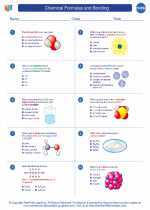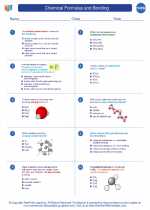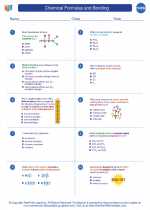Chemical Formulas and Bonding -> exothermic
Exothermic Reactions
An exothermic reaction is a chemical reaction that releases energy in the form of heat. During an exothermic reaction, the energy released is greater than the energy needed to break the bonds of the reactants, resulting in a net release of energy to the surroundings.
Characteristics of Exothermic Reactions
- Release of heat
- Temperature of the surroundings increases
- Negative change in enthalpy (ΔH)
- Examples include combustion reactions and some oxidation reactions
Examples of Exothermic Reactions
Some common examples of exothermic reactions include:
- Combustion of fuels, such as burning of wood or gasoline
- Neutralization reactions, such as the reaction between acids and bases
- Reaction of iron with oxygen to form rust
- Many decomposition reactions
Study Guide
To understand exothermic reactions, it's important to study the following concepts:
- Bond Energies: Learn about the energy required to break chemical bonds and the energy released when new bonds are formed.
- Enthalpy Change (ΔH): Understand how to calculate the change in enthalpy for a reaction and how it relates to exothermic processes.
- Energy Diagrams: Study how to interpret and draw energy diagrams for exothermic reactions, including the activation energy and overall energy change.
- Real-Life Applications: Explore real-life examples of exothermic reactions in everyday processes, such as cooking, combustion engines, and industrial processes.
By mastering these concepts, you'll have a solid understanding of exothermic reactions and their significance in chemistry.
[Exothermic] Related Worksheets and Study Guides:
.◂Chemistry Worksheets and Study Guides High School. Chemical Formulas and Bonding
Worksheet/Answer key Chemical Formulas and Bonding
Chemical Formulas and Bonding  Worksheet/Answer key
Worksheet/Answer key Chemical Formulas and Bonding
Chemical Formulas and Bonding  Worksheet/Answer key
Worksheet/Answer key Chemical Formulas and Bonding
Chemical Formulas and Bonding 

 Worksheet/Answer key
Worksheet/Answer key
 Worksheet/Answer key
Worksheet/Answer key

The resources above cover the following skills:
PHYSICAL SCIENCE (NGSS)
Matter and Its Interactions
Students who demonstrate understanding can:
Plan and conduct an investigation to gather evidence to compare the structure of substances at the bulk scale to infer the strength of electrical forces between particles.